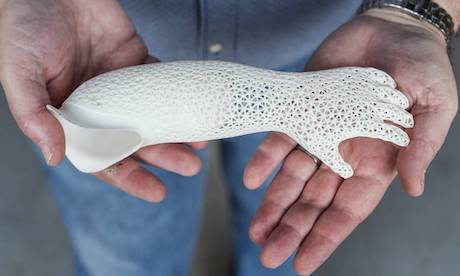Professor Olaf Diegel is a New Zealander who returned this year to take up a new role as head of the Creative Design and Additive Manufacturing Laboratory at the University of Auckland.
The purpose of the lab – a $10 million joint venture between the University and government – is to get New Zealand industry using 3D printing in a better way.
In the course of his career, Diegel has developed over 100 new products for companies in New Zealand and worldwide.
Several home health monitoring products, security and marine products, and lighting products are among the items he has produced.
3D printing body parts
Researchers have already made a start on “bioprinting” – printing organs such as bladders and tracheas Diegel says.
He predicts the ability to print more complex organs such as livers and kidneys could come in the next decade.
Ethical questions
Diegel says this development would create some ethical and social questions:
- People could live to 150
- Would 3D printed organs would be available only to the rich?
- Should you be able to print yourself a spare body to keep in the refrigerator at home just in case?
- Should you be able to print better organs than your original ones?
- What happens if you hack a 3D printer while it’s printing and it creates a bad part – but you wouldn’t know about it until it potentially causes some harm?
- If people could print 3D food, what would they do with all the time they would have spent cooking?
- The advent of 3D printing could also make spare parts obsolete. If manufacturers no longer needed warehouses of spare parts, global business models would need to change.
Source
- auckland.ac.nz
- stuff.co.nz
- Image: stuff.co.nz
